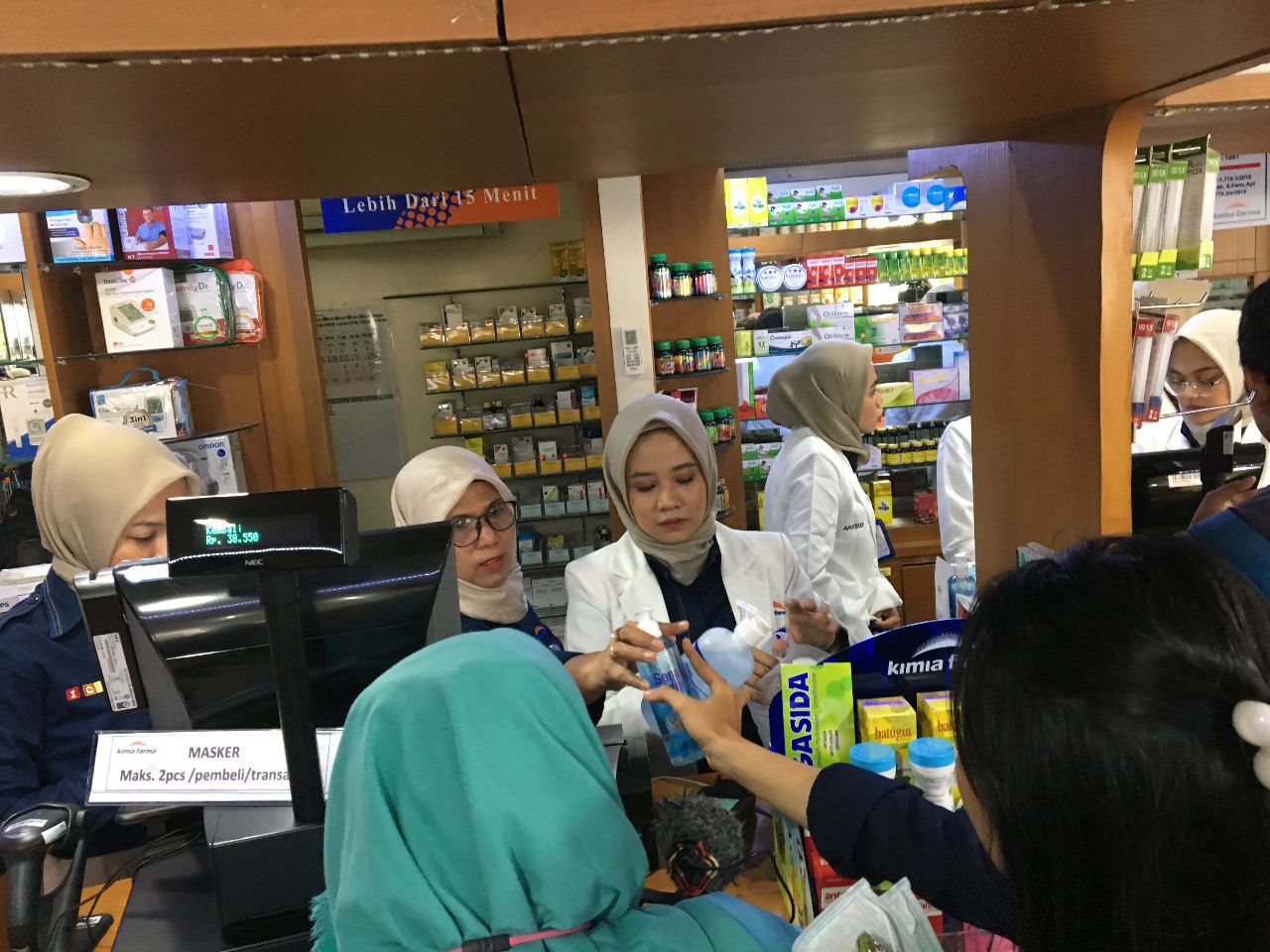Popular Reads
Top Results
Can't find what you're looking for?
View all search resultsPopular Reads
Top Results
Can't find what you're looking for?
View all search resultsRising export protectionism in time of global isolation
The World Trade Organization (WTO) Secretariat recently published a non-exhaustive list of trade-related measures taken by WTO Members in response to the COVID-19 outbreak. Interestingly, the list shows two common types of trade policies taken by countries to tackle the crisis.
Change text size
Gift Premium Articles
to Anyone
T
oday, many of us are experiencing difficulties in finding face masks and hand sanitizer in local stores. The demand for medical/hygiene products has increased significantly around the globe in the first quarter of 2020 due to the outbreak of COVID-19, and production struggles to meet this skyrocketed demand. Panic buying and hoarding behavior exacerbate the scarcity of these products in a time of health crisis.
A similar dynamic is also occurring at the international level as export prohibitions have proliferated. Countries are increasingly imposing export bans on medical equipment/products as a means to shore up their domestic supplies during the coronavirus pandemic. The World Trade Organization (WTO) Secretariat recently published a non-exhaustive list of trade-related measures taken by WTO Members in response to the COVID-19 outbreak. Interestingly, the list shows two common types of trade policies taken by countries to tackle the crisis: (1) export prohibition/restriction, and (2) temporary import requirement waiver/suspension.
The Indonesian government appears to be following the trend. In March 2020, the Trade Ministry issued Regulation No. 23/2020 followed by its amendment under MOT No. 31/2020, which temporarily bans the export of face masks, its raw materials, antiseptic and protective gear such as surgery clothing to ensure adequate domestic supplies. At the same time, the ministry issued Regulation No. 28/2020, which temporarily waives import requirements on certain medical/hygiene products such as antiseptic soap, masks and thermometers. In a normal situation, imports of these products are restricted and importers have to comply with a number of import requirements such as import licensing, selective ports of entry and pre-shipment inspection.
The coronavirus crisis appears to have inverted the popular trade policy based on the mercantilist view that “exports are good while imports are bad”. However, the notion of export protectionism in response to today’s global crisis is still a bad idea.
Many commentators have expressed their concern that export restrictions of medical equipment will eventually harm all countries, in particular vulnerable ones. For instance, Chad Peterson Bown of the Institute for International Economics criticizes the European Union’s export restrictions on medical gear, highlighting the unintended costs of such policy measures for other countries, especially fragile ones with limited domestic production capacity.
Export restriction measures will also affect the access/supply of the medical components. It is reported that a Switzerland-based market leader in the manufacture of ventilators is struggling with its production, and one of the main bottlenecks is the supply of components. Romania has classified a needed ventilator component as a “medical device”, thus preventing its export to Switzerland. World Bank economists Aaditya Mattoo and Michele Ruta in their opinion published in the Financial Times, also warn about the peril of export restrictions to the availability and affordability of medical equipment. They took the global ventilator market as an example, and found that seven countries accounted for 70 percent of total exports. Thus, if one producer imposes an export restriction, the global price of ventilators would increase by up to 10 percent, and the percentage would increase if others decided to follow the move.
Several commentators have proposed easier access to medical supplies. Costa Rica’s former trade minister, Anabel Gonzalez, for example, recommends certain policy actions such as lowering tariffs on pharmaceuticals, medical devices and other medical supplies; improving trade facilitation to fast-track the moving of health-related products and materials; adopting international standards to ensure the quality and safety of medical products; and allowing medical professionals to move across borders.
Medical supplies are still facing tariff and non-tariff measures in many WTO member countries, as shown in a report by the Global Trade Alert team. Seventy-nine WTO Members have imposed import duties of 15 percent or more, and 31 governments are charging import tariffs of 30 percent or more on imports of soap. In Indonesia, importers of body soap and soaps containing disinfectant are subject to income tax levied for conducting import activities pursuant to Finance Ministerial Regulation No. 110/PMK.010/2018.
Overall, a global trade cooperation is a crucial and needed solution to fight COVID-19. Sharing information and facilitating the flow/movement of medical products and professionals can be one of many forms of global cooperation in sharing global resources to combat this pandemic. More trade protectionism will do more harm than good.
***
Law lecturer at Universitas Pelita Harapan (UPH) and director of the UPH Center for International Trade and Investment. The views expressed are her own.











